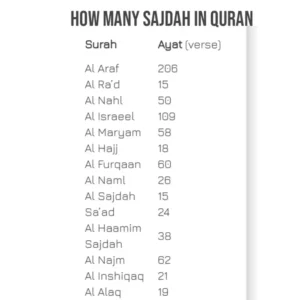Inna Lillahi Wa Inna Ilayhi Rajiun Meaning, Arabic Text & Benefits

“Inna Lillahi Wa Inna Ilayhi Rajiun” is a powerful Quranic phrase, also known as Istirja, found in Surah Al-Baqarah. Muslims often recite it in times of hardship, grief, or loss, including upon receiving bad news or when someone passes away.
By saying this phrase, we acknowledge that Allah is the ultimate authority, and we trust in His wisdom and mercy. It’s a declaration of our faith, patience, and submission to His will.
Inna Lillahi Wa Inna Ilayhi Raji’un Meaning In English
Inna Lillahi wa inna Ilaihi rajiun in English means ‘Indeed, to Allah we belong and to Allah we shall return’.
Inna Lillahi Wa Inna Ilayhi Raji’un In Arabic
In arabic inna Lillahi wa inna Ilayhi raji un is written as,
إِنَّا لِلَّٰهِ وَإِنَّا إِلَيْهِ رَاجِعُونَ
Inna Lillahi Wa Inna Ilayhi Raaji’un Ayah
Inna Lillahi Wa Inallah e Raji oon is mentioned in ayah 156, Surah Baqarah, the second and longest surah in the Quran. The full aya is:
Who, when disaster strikes them, say, “Indeed we belong to Allah, and indeed to Him we will return.”
Inna Lillahi Wa Inna Ilayhi Rajiun Complete Dua
The complete Dua of inna lillahi wa inna ilayhi raji’oon is
إِنّا للهِ وَإِنَا إِلَـيْهِ راجِعـون ، اللهُـمِّ اْجُـرْني في مُصـيبَتي، وَاخْلُـفْ لي خَيْـراً مِنْـها
Transliteration
Innā lillāhi wa innā ilayhi rāji`ūn, Allāhumma-jurni fī muṣībatī wa ‘khluf lī khayran minhā.
Meaning
We are from Allah and unto Him we return. O Allah take me out of my plight and bring to me after it something better.
In the Quran, Allah describes how disasters and calamities strike, causing mental and physical distress.
These afflictions serve as a reminder that we belong to Allah, and our lives and possessions are under His control. We have no autonomy, and our fate is decreed by the Most Merciful.
As true servants of Allah (‘uboodiyah), we must acknowledge that calamities are part of His divine plan, decreed by the Sovereign, the Most Wise, who is more merciful to us than we are to ourselves.
Accepting Allah’s decree brings contentment and gratitude, even when we don’t fully understand the reasons behind our trials.
Moreover, we will ultimately return to Allah on the Day of Resurrection, where we will be rewarded or punished based on our deeds.
By recognizing our servitude to Allah and our accountability to Him, we can cultivate patience and seek reward, leading to a greater share of blessings and mercy.
Conversely, impatience and resentment will only lead to loss and regret. Embracing our status as Allah’s slaves and acknowledging our return to Him is a powerful means of attaining patience and finding peace in the face of adversity.
READ ALSO: Last Two Verses Of Surah Baqarah in Arabic, Meaning & Benefits
The Virtue of Affirming “Inna Lillahi Wa Inna Ilayhi Rajiun” during Hardships
Numerous Hadiths highlight the rewards of declaring (إِنَّا لِلّهِ وَإِنَّـا إِلَيْهِ رَاجِعونَ) when faced with afflictions. This statement acknowledges that we are under Allah’s ownership and will ultimately return to Him.
According to a Hadith reported by Imam Ahmad, Umm Salamah narrated that the Prophet (peace be upon him) said:
“When a Muslim is afflicted and says ‘Inna lillahi wa inna ilayhi raji’un’ (We belong to Allah and to Him we shall return), and then asks Allah to reward them for their loss and grant them something better, Allah will indeed do so.
Umm Salamah memorized these words and applied them when her husband, Abu Salamah, passed away.
She said the prescribed phrase and asked Allah to compensate her with something better.
Later, the Prophet (peace be upon him) proposed marriage to her, and she initially hesitated due to her jealousy and fear of not meeting his expectations.
However, the Prophet reassured her that Allah would remove her jealousy and that he had also experienced similar struggles.
He further emphasized that her children would be his as well. Umm Salamah ultimately accepted his proposal, and later acknowledged that Allah had indeed compensated her with someone better than Abu Salamah – the Prophet himself.
This Hadith highlights the importance of patience, trust, and affirming our belonging to Allah during difficult times.
When faced with afflictions, remember that “We belong to Allah and to Him we shall return” (Inna lillahi wa inna ilaihi rajiun).
This phrase is a powerful reminder of our surrender to Allah’s will. In times of hardship, whether it be illness, loss of wealth, or the passing of loved ones, recite this statement to find solace.
When death strikes, add the supplication: “Allahumma Ajjurni fi musibati wakhluf li khairan minha” (O Allah, compensate me in my affliction, recompense my loss, and give me something better in exchange).
Umm Salamah, the wife of Abu Salamah, exemplified this faith when her husband passed away. She recited this supplication, trusting in Allah’s promise.
Later, the Prophet Muhammad (peace be upon him) proposed marriage to her, and she found comfort in his companionship, recognizing that he was a better blessing than she could have imagined.
Trials are an inevitable part of life, but don’t let them shake your faith. Instead, draw strength from the knowledge that we belong to Allah, and He is the sovereign ruler of our lives.
True believers find comfort in these words, acknowledging that Allah does as He pleases, and that our deeds will be accounted for on the Day of Resurrection.






